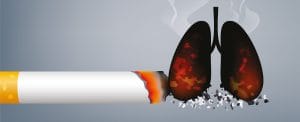Catania, November 5, 2024 – Last Wednesday, October 30, Catania hosted the Annual CoEHAR Conference, led by the founder of the University of Catania’s Research Center, Prof. Riccardo Polosa, and its director, Prof. Giovanni Li Volti. The conference addressed two major topics: oral health and cardiovascular disease prevention. Among the 25 distinguished speakers were many prominent harm reduction and addiction specialists from leading U.S. universities.
“Our goal is to reduce the incidence of smoking-related diseases, and with reduced-risk products now available worldwide that are 80 to 90% less toxic than traditional cigarettes, the answer is already in our hands, as shown by many forward-thinking countries”- Prof. Riccardo Polosa stated.
Sweden, for example, has lowered its smoking rate to 5.6% thanks to harm reduction tools, achieving a 41% lower cancer rate than other EU countries and a 38% reduction in cancer-related deaths. In the United Kingdom, smoking rates have dropped five percentage points in just five years, reaching 12%. New Zealand has seen its smoking rate decrease from 15.1% in 2018 to 8% in 2022. “These nations are likely to become smoke-free within a few years” – Polosa noted.
Italy, too, has made important strides recently. As Hon. Francesco Ciancitto, a national deputy and member of the House Social Affairs Committee, explained: “Smoking harm reduction is central to a parliamentary resolution already approved by the committee, aiming to launch effective strategies for preventing cardiovascular disease. The ultimate goal is to introduce innovative policies that address the need to prevent serious cardiovascular diseases while simultaneously reducing costs for the national healthcare system.”
As every year, the CoEHAR conference provided an important platform for scientific dialogue on the effects of applied research into alternative nicotine delivery devices, such as e-cigarettes and heated tobacco products. This year, however, special emphasis was placed on oral health. All types of smoking are dangerous, and ideally, the population—especially young people—should avoid smoking altogether. However, it is clear that switching from traditional smoking to electronic alternatives appears to reduce these health risks, including those affecting the oral cavity. This is supported by several ongoing CoEHAR projects, which show tangible evidence that transitioning from smoking to non-combustible products helps restore the natural whiteness of teeth and improves overall oral health.
“The introduction of new smoking products over the past decade has captured the attention of tobacco experts,” said Prof. Fabio Beatrice of the MOHRE Observatory. “We hope that scientific interest does not divert attention from the central issue, which remains cigarette smoking. Quitting is difficult, and disregarding risk reduction strategies seems clinically unjustifiable. I hope the debate moves beyond mere ideology and focuses on the comparison of scientific data.”
The CoEHAR conference, integrated into the Annual Meeting on Addiction that took place in Catania from October 28 to 31, also included contributions from Prof. Sarah Pratt of Dartmouth College, Prof. Thomas Brandon of the Moffitt Cancer Center, and Prof. Lorien Abroms of George Washington University – all researchers committed to combating smoking addiction through harm reduction strategies.
As Prof. Giovanni Li Volti concluded, “We are on the brink of a revolution that will take us far and profoundly impact the lives of individuals and public policies around the world.”
Read more




